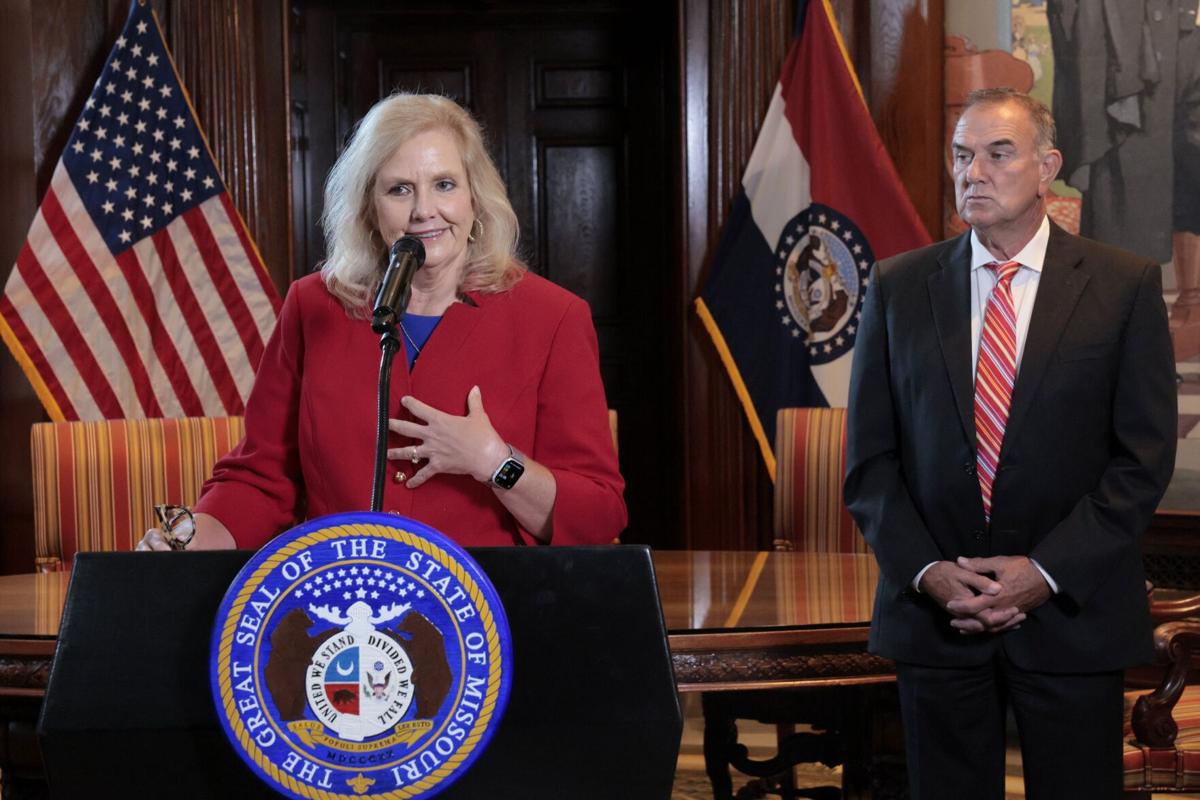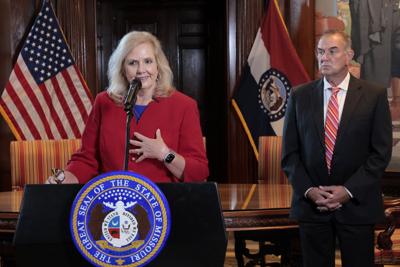JEFFERSON CITY — Back in 2003, when Catherine Hanaway was Speaker of the Missouri House, she had a question for Jay Nixon.
Hanaway, a Republican, was the first woman to hold the Speaker position. Nixon, a Democrat, was the longtime attorney general.
Missouri faced a budget crisis, and Gov. Bob Holden wanted the state to sell bonds to raise money for public schools. The bonds would be secured by $130 million in tobacco settlement money that was flowing to the state annually.
Hanaway wanted to know if this was constitutional. and asked him for a legal opinion. “Does the Board of Public Buildings have authority to issue general obligation bonds on behalf of the State of Missouri without a vote of the people of the state?” Hanaway asked.
People are also reading…
It was the sort of request that, for nearly all of Missouri’s history, was regularly made to attorneys general by lawmakers and local public officials.
Hundreds of such opinions are posted on the Attorney General’s website, . While the opinions are not binding, they have long guided elected officials on issues of public importance.
The practice changed under the past three attorneys general: Josh Hawley and Eric Schmitt — both Republicans who left after brief stints to join the U.S. Senate — and Andrew Bailey, a Republican who left this week to become co-deputy director of the FBI. Other than legally required reviews of initiative petitions, Hawley, Schmitt and Bailey virtually ended the practice of issuing opinions.
It’s not like the requests dried up. In 2019, for instance, state Rep. Peter Merideth, a St. Louis Democrat, asked Schmitt an important question about how House members were interpreting the Sunshine Law. Schmitt never responded. Last year, multiple elected officials from around the state requested opinions from the attorney general’s office. There were, for instance, questions from prosecutors about the Sunshine Law and from a county Board of Election about official duties.
I asked Bailey’s office multiple times why no public opinions were issued in these cases. I never received an explanation.
Hanaway now has a chance to change things.
On Tuesday, Gov. Mike Kehoe appointed her to replace Bailey. As with the Speaker post, Hanaway became the first woman to hold the office of attorney general. Her appointment was cheered in the legal community. Lawyers across Missouri have been increasingly concerned about the politicization of the attorney general’s office, which Bailey turned into an art form.
The office performs critical functions, such as defending government departments in lawsuits, protecting consumers from fraud, enforcing the Sunshine Law and, in some cases, helping local prosecutors with criminal cases.
Former Attorney General Chris Koster once told me that the most important skill for the job was the ability to run a big law office. That’s an area where the past three attorneys general were all criticized for falling short, as the office bled staff and cases were constantly put on hold. Hanaway, as the former chairperson of the Husch Blackwell law firm and a former federal prosecutor, has the right sort of management experience.
Even Democrats are hoping she’ll bring stability and professionalism to the office.
“Catherine Hanaway will be a vast improvement over her incompetent and unprofessional predecessor,” House Minority Leader Ashley Aune, a Kansas City Democrat, wrote in an emailed statement. “House Democrats believe she can restore integrity to the office.”
In an era of constant one-upmanship among politicians, that’s quite a ringing endorsement.
The devil, though, will be in the details. Like the letter Nixon wrote back to Hanaway in 2003. Yes, the then-attorney general said, the state could issue bonds secured by the tobacco settlement without a public vote. It never happened, but the exchange of letters and legal analysis between two of the state’s top elected officials helped educate the debate.
In 2003, the year that Hanaway sought Nixon’s feedback on the bond issue, 15 such opinions were issued and published on the state’s website. They included topics such as election law, tax policy, special taxing districts, retirement funds and competitive bidding. This year? Not one opinion.
The attorney general’s office has played a critical role for most of the state’s history. Maybe it will do so again with a grownup in charge.
������Ƶ metro columnist Tony Messenger discusses what he likes to write about.













